Veganuary: Is it time UAE schools take meat off the menu to help the planet?
Every school would claim they want to encourage responsible citizenship and help save the planet. But how many schools walk the talk when it comes to sustainability?
A UK school headteacher thought she was doing just that when she decided to ban meat from her school canteen last year, in a bid to highlight the “huge environmental cost” of the meat and dairy industries. Pupils at the Lancashire-based primary school are now only offered vegetarian school lunches and are encouraged to bring in plant-based packed lunches too. But the announcement was met with outrage by many parents, according to UK newspaper headlines, some of whom even threatened to take their child out of the school as a result.
This ‘Veganuary’ – a month-long annual challenge encouraging people to live a vegan lifestyle for the month of January – we asked UAE parents and teachers whether they think veganism or vegetarianism is something all schools should be embracing in a bid to help combat climate change?
View this post on Instagram
Reactions from UAE parents have been mixed, but passionate:
“I would be livid if my school sprang a meat-free policy on me,” says Ellie Salkeld, a Dubai-based British mum of eight-year-old twins.
“The key word being ‘sprang’ as I have no objection in principle. But making a significant change without a proper period of time for children and parents to adjust and become educated on what changes and choices to make, risks undermining the health of children and their ability to learn properly during the day.”
However, a meat ban in schools would be a welcome move for Lucy Bruce, owner and director of Home Grown Children’s Eco Nursery in Dubai:
“As a parent, educationalist and a temporary resident of Planet Earth, I personally would welcome a school that took meat off its school lunch menu.”
“My children do eat meat; however, I do not. I would be very happy for my children to have one plant-based meal a day at school, as it will not only reduce their and the school’s carbon footprint, but also has many health benefits as well, whilst encouraging them to try new flavours and plant-based foods.”

Asha Alexander, Principal and CEO GEMS Legacy School, Dubai, Executive Leader Climate Change-GEMS Education
For Asha Alexander, Principal, GEMS Legacy School and Executive Leader – Climate Change, GEMS Education, it needs to be more about education rather than enforcement:
“Eating meat is a choice, but with adequate education about the carbon footprint of the food we eat, we can encourage students to gradually replace or reduce their consumption of meat. Meat such as beef is consumed excessively in some countries and accounts for large emissions of greenhouse gases. However, I think enforcing things usually leads to resistance.”
Mark Atkins, Principal of Durham School Dubai, agrees:
“Banning meat is simply not practical and it removes the element of freedom of choice, a British value. We need to present children and parents with the facts about meat farming and sustainability, in this way we get ‘buy in’ and support not stubborn resistance.”

Mark Atkins, Head of Durham School Dubai with Durham UK and the new Dubai school in the background
“We think schools should definitely consider plant-based meals. They are supposed to set an example and teach children about all the ways to save our planet, which includes your diet.”“Plant-based meals provide excellent nutrition. They are rich in fibre, vitamins, minerals, and antioxidants that boost childrens health, concentration and activities.”“At this moment school canteens are carb loaded, which is heavy on a tiny tummy and makes most children sleepy. Plant protein like soy, beans, lentils, peas, nuts, seeds, and whole grains like amaranth and quinoa are high-quality proteins that can meet a child’s daily protein needs and keep them going throughout the day.”
Mother of two and founder of Vegan Kids Dubai, Liz Van Graan, says that she believes UAE schools should seriously consider switching to a plant-based diet
“Research shows that children who are raised on healthful vegan diets have a reduced risk for heart disease, cancer, obesity, diabetes, and other conditions. It’s also interesting to know that 8 million hectares of what was once rainforest is currently used for soy production. That’s roughly the same size as Scotland. 77% of this soy produced annually, is consumed by animals – the huge majority of which are farmed for human consumption.”
“So, we strongly feel that parents should do some investigation about where their food comes from and support any initiative to help save our planet.”
Meanwhile, for Principal of famously eco-minded Arbor School in Sustainable City, Brett Girven, the idea that schools should be pushing any particular lifestyle or agenda – including a meat-free one in the name of sustainability – is to entirely misunderstand a school’s role:
“We are in the business of education, not indoctrination.”
“In the case of sustainability, it’s clear that modern agriculture and horticulture contributes a large amount of carbon into our atmosphere.”
“However we believe that to educate our children about how to take sustainable decisions is our core purpose.”
“Although I am sure many of our parents would be receptive to a decision like this, we continue to offer choice and ask parents to be parents, and give them the decisions around what their child eats or doesn’t eat.”
Touching a raw nerve
The meat ban in an obscure English primary school made the news in countries from the US to Australia not because of the policy itself, but because it touches on a raw nerve in the current zeitgeist. Veganism – not only as an animal-product-free diet, but as a cruelty-free and eco-conscious lifestyle – has been on the rise for many years and is finally reaching a tipping point. Google Trends data suggests that interest in veganism doubled between 2015 and 2020, while the number of new vegan products available on the market has mushroomed by 250% since 2010 to keep up with demand.
With vegan as well as vegetarian options now for sale at mass market venues from Ikea to Subway and MacDonalds, the lifestyle has officially entered the mainstream – with a predictable backlash as a result.
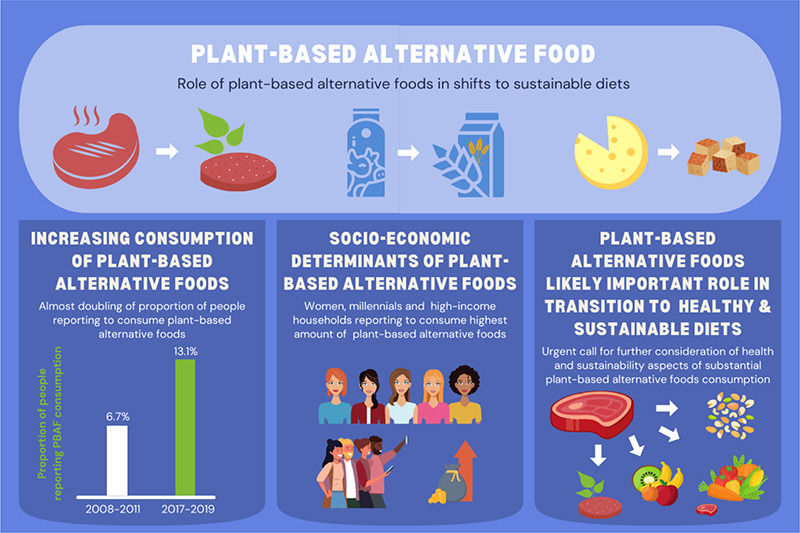
Source: The role of plant-based alternative foods in sustainable and healthy food systems: Consumption trends in the UK, Science of The Total Environment, Volume 807, Part 3, 2022.
While some argue that plant-based living is the only sustainable future for our planet, others see it as a controversial trend that’s all part of a so-called “woke” agenda to control people’s lives.
A father of two children attending a British school in Dubai, who requested to keep his name anonymous, told SchoolsCompared that controlling children’s diets goes beyond the scope of schools’ remit:
“In fee-paying schools where you provide your child’s own packed lunches, a school has no right to say children can’t eat meat if they want to.”
“That would be outrageous and exceeding their authority. I am the parent and schools have no right to force their political beliefs or desire to follow what’s trendy on other people’s children.”
“Schools should follow sound advice based upon proper academic research and the guidance of regulators. It is not up to individual heads to make pronouncements based on their own opinion or personal research – which may or may not be fallible.”
Nevertheless, there is a precedent for UAE schools controlling what children can consume on their grounds. In 2019 the Ministry of Education issued a circular advising an immediate ban on nine foods from all school premises, including: hot dogs and processed meats; instant noodles; chocolate bars; sweets and lollipops; potato and corn chips; carbonated drinks and cream cakes and doughnuts.
View this post on Instagram
Although the impetus behind banning these foods from school canteens was health-related in the name of curbing the UAE’s obesity crisis, there are strong health arguments against meat too.
In 2015 the World Health Organisation (WHO) declared red meat and processed meat to be a carcinogen, while a Harvard study in the same year concluded that eating red meat during adolescence is linked to a heightened risk of breast cancer in pre-menopausal women.
Providing well-balanced vegan meals is one of the best things a school can do for the health of its developing students said Jason Baker, the Senior Vice President of animal-rights charity PETA Asia, in an exclusive interview with SchoolsCompared:
“Meat, dairy, and eggs are known contributors to heart disease, obesity, cancer, diabetes, and other common life-threatening ailments. Plant-based foods, on the other hand, are free from any dietary cholesterol.”
“Animal agriculture is the leading cause of greenhouse gas emissions, contributing to climate change, and it uses massive amounts of valuable resources such as food, land, and water that could be used to help feed the millions of people in the world who don’t have enough to eat.”
“By putting together a healthy and sustainable vegan menu to nourish its students, a school not only fulfills the requirement for healthier cafeteria fare but also takes a stand against the cruelty inherent in the meat, dairy, and egg industries and helps fight climate change—which will set a positive, compassionate example for its students and society at large.”
Do schools have a moral duty to go meat-free?
As the impact of climate change becomes increasingly obvious, there is a growing sense of urgency that more needs to be done to preserve and protect the environment – and young people are some of the most passionate climate activists, as Greta Thunberg and her followers have shown.
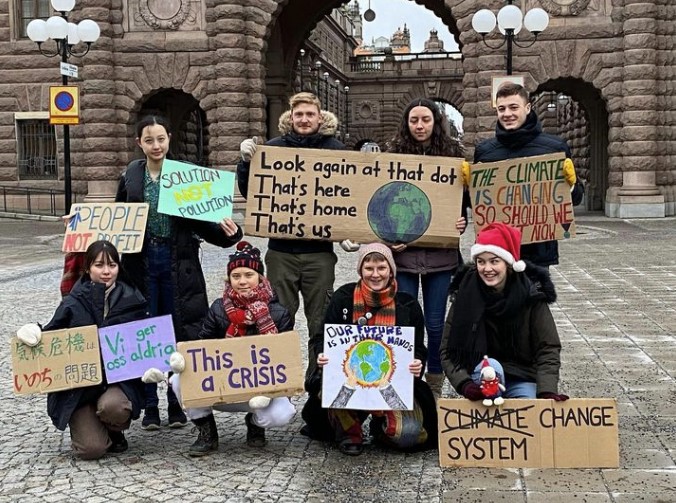
Climate activist Greta Thunberg has inspired thousands of young people to fight for a more sustainable world, including the famous school strike of 2018, which saw more than 1 million students walk out of their schools in the name of demanding action to prevent climate change
So what do the UAE’s young people themselves think of the possibility of schools going meat-free? Research suggests that many of them would be supportive of it. A White Paper published in 2020 by Emirates Nature WWF, reflecting the views of 1,595 young people in the UAE, found that 99% of them agree that ‘sustainable diets and nature-friendly food production should be a priority’, and 89% are ‘willing to include alternative protein in their diets’.
Even social media site TikTok MENA – with more than 66% of its users aged between 13 and 24 years – has aligned itself with the climate change cause. In November 2022, as Cop27 kicked off in Egypt, it launched its #Climate Action campaign, partnering with popular content creators with the aim of promoting conversations around climate change on the platform.
@tarabellerose What 2050 could look like, IF we do nothing. I will be 52, what about you? #climatechange #climateaction
Recent research shows there are compelling reasons to switch to a plant-based diet for environmental reasons. The UK Committee on Climate Change report released in 2019 states that the livestock industry accounts for an estimated 14.5 per cent of all human greenhouse gas emissions, and that in countries with high per-capita meat consumption (like the UAE, which consumes 18 times more meat per person than the global average), a shift to plant-based diets would deliver up to around a 73% reduction in diet-related emissions compared to current levels.
A recent study from EAT-Lancet also recommended a shift from meat to plant proteins on climate grounds. Prof. Walter Willett, MD Harvard T.H. Chan School of Public Health, writes in the EAT Lancet report:
“A radical transformation of the global food system is urgently needed. Without action, the world risks failing to meet the UN Sustainable Development Goals (SDGs) and the Paris Agreement, and today’s children will inherit a planet that has been severely degraded and where much of the population will increasingly suffer from malnutrition and preventable disease.”
Is a plant-based lifestyle nutritionally safe for children?
While there might be a hunger for more eco-friendly school meals and policies among some, would a wholly plant-based school menu be nutritionally safe for children?
Research by the Academy of Nutrition and Dietetics, a trade association that shapes food policy in the US, concludes with the clear assertion that vegan diets can be safe for children as long as they are properly delivered:
“Appropriately planned vegetarian, including vegan, diets are healthful, nutritionally adequate, and may provide health benefits for the prevention and treatment of certain diseases. These diets are appropriate for all stages of the life cycle, including pregnancy, lactation, infancy, childhood, adolescence, older adulthood, and for athletes.”
However ‘appropriate planning’ is not always easy or practical when it comes to the UAE’s busy lifestyles and the unforgiving pace of the school run. While parents might struggle to create sufficiently nutritious plant-based lunch boxes every day, there’s also no guarantee that a school-provided plant-based meal would necessarily be healthier or better for the environment than meat.

Ellie Salkeld is the mum of twins, a children’s book writer and part-time teaching assistant
Ellie Salkeld, mum of two, writer and a former classroom teaching assistant shares her thoughts:
“It’s really difficult to create meals that are healthy, as un-processed as possible, and with the right balance of protein and good fat to make sure that kids don’t want to fall asleep within 45 minutes.”
“From my time working in the classrooms of younger primary school children, I have seen a fair few lunch and snack boxes, and have sometimes been struck at the nutritional make-up of these. They are often sugar heavy (primarily in fruits, cake-biscuit items, yoghurt-type items and heavily processed carbohydrates) and protein-light. Creating snack and lunch portions for children at various ages which are both healthy and enable them to remain alert and focussed is difficult enough, without removing meat as a protein source.”
“Meat substitutes may be significantly less healthy and significantly more processed than meat itself.”
Jordana Ventzke, founder of JV Nutrition, also warns that not all plant-based foods are as healthy or even as environmentally friendly as they might seem:
“It is important to note that the production of meat alternatives is more taxing on the environment and impacts the toxic load on the body. Most meat alternatives we have on the market have anywhere upwards of 10 ingredients, most of which the laymen wouldn’t recognise.”
“Vegan/vegetarian processed products are often very high in seed oils which can negatively affect our health.”
“Making a school meat-free requires a huge amount of planning. There would need to be a lot of education done to ensure parents know what nutrients they should be focusing on and ensuring that meals are balanced providing enough protein and fats. This ensures proper glucose control throughout that day, avoiding major highs and lows which affect concentration. If schools or parents did decide to go this route, I would advise them to get educated to make meals balanced.”
“For me, what is more important than deciding to go meat-free is to look at the frequency with which you are including meat into your diet and then to look at the quality of meat/animal products you are including into your diet. This affects your nutrient intakes, as well as the toxic load on your body which is an area where more research is starting to be released and how this affects our overall health.”
“We certainly do need to look at the long-term effects on the environment and the quality of diets for our children, but it is not as simple as going meat-free.”
Sprout.ae delivers nutritionally dense, preprepared food for children, which is also free from animal-derived products
However, Katerina Papatryfon Drako, Dubai-based mum and co-founder of Sprout.ae – which delivers wholesome, nutritionally dense pre-prepared meals for toddler and children – says that even replacing one meaty meal per day can have a positive impact on both children’s health and the environment, and that schools could play their part in this:
“Can eating just one meat-free and/or dairy-free meal a day make a difference in our children’s lives? Absolutely! But this should be one meal with absolutely no cholesterol, antibiotics or hormones (which only come from animal products), very low saturated fat, and tons of fibre (which only comes from whole plant foods) and a whole lot of vitamins and minerals from veggies, fruits, legumes and whole grains. These are the foods that are severely lacking in most children’s diets today- And schools like Barrowford Primary School in the UK are paving the way for one healthy fibre-loaded, climate-friendly meal a day!”
“I would love to see more schools follow suit. Change starts with our youngest generation- We need to teach them to eat well and responsibly, and to protect their health and the planet.”
The role UAE schools can play in encouraging more planet-friendly food options
In January 2023, His Highness Sheikh Mohammed bin Rashid Al Maktoum, Vice-President and Prime Minister of the UAE and Ruler of Dubai, announced that the environment and sustainability are one of the country top five priorities for the new year.
View this post on Instagram
While schools going entirely meat-free might be impractical, is there scope for schools to help redress the balance?
Schools such as Homegrown Children’s Eco Nursery and The Arbor School practice a Meat-free Monday policy, whereby children are encouraged to choose plant-based options one day a week – a policy that the UK’s Department of Education is said to be considering for state schools in England. Homegrown Co-founder Lucy Bruce says:
“Meat Free Monday was introduced 8 years ago into both of our branches. We wanted parents and children to help us reduce our carbon footprint as well as support us with our ‘Green Engagement’ program that we teach at Home Grown.”
“Meat Free Monday is not mandatory however we encourage parents to send meat free snacks and lunch boxes once per week. This has given our teachers extended opportunities to deliver lessons that focus on where our food comes from, how eating plants including an abundance of fruit and vegetables can help us to be healthy and strong and how our food choices can negatively impact our planet.”
“We also encourage minimum packaging, recycle where possible and compost left over food to produce organic feed for our garden and vegetable patch.”
The children at Home Grown Eco Nursery are encouraged to bring in plant-based packed lunches on ‘Meatless Mondays’
Harness Foods, which provides the catering for the canteen in one non-profit school in Dubai, says that daily vegetarian and vegan options, as well as a pared-down use of carbon-intensive meat like beef is just one part of its holistic sustainability approach – which includes using only wholly recyclable and compostable packing, as well as stringent waste management. Chris Riding, co-founder and CFO of Harness Foods says:
“I think that abruptly forcing people to eat meat free alternatives goes against freedom of choice. Instead we should encourage people to reduce meat consumption through both educating customers on the damage that the meat industry has on the environment, along with pushing chefs to create new tasty meatless recipes that will act as enticing alternatives.”
Rania Laing, Social Impact & Management Consultant and CEO of Your Neuro Coach, provides sustainability consulting for schools in the UAE. She says that a recent “carbon calculator” session with students at a British-curriculum school in Dubai threw up some interesting and thought-provoking results:
“We used a carbon calculator to assess the environmental impact of all the student’s lunchboxes. Out of a class of 19 students, the one who had a beef burger for his lunch had a higher carbon footprint than all the remaining 18 students’ lunchboxes put together!”
This is the sort of education that Asha Alexander, Principal, GEMS Legacy School and Executive Leader – Climate Change, GEMS Education, practices in her school. They have introduced a Sustainable Lunchboxes initiative, as well as a nutrition curriculum, which entails students creating sustainable recipes, building their own meals, and engaging with parents and students to work together in planning a healthy meal and learning how to order a nutritious meal while dining out:
“We teach students about sustainable diets. Eating meat is a choice, but with adequate education about the carbon footprint of the food we eat, we can encourage students to gradually replace or reduce their consumption of meat.”
“I think banning a whole food group is not a reasonable approach. Food has emotional connections for people and as long as meat like beef is considered in moderation and substituted whenever possible with meats that have a lower carbon footprint, we are on our way to helping the planet heal.”
“The true climate impact of what we eat is not easy to calculate. The carbon footprint of food varies depending on how it is produced and where it comes from as well as seasonal changes. So, besides cutting down on red meat, students can be encouraged to make their diets more climate-friendly by minimising waste and choosing fruit and vegetables that are in season.”
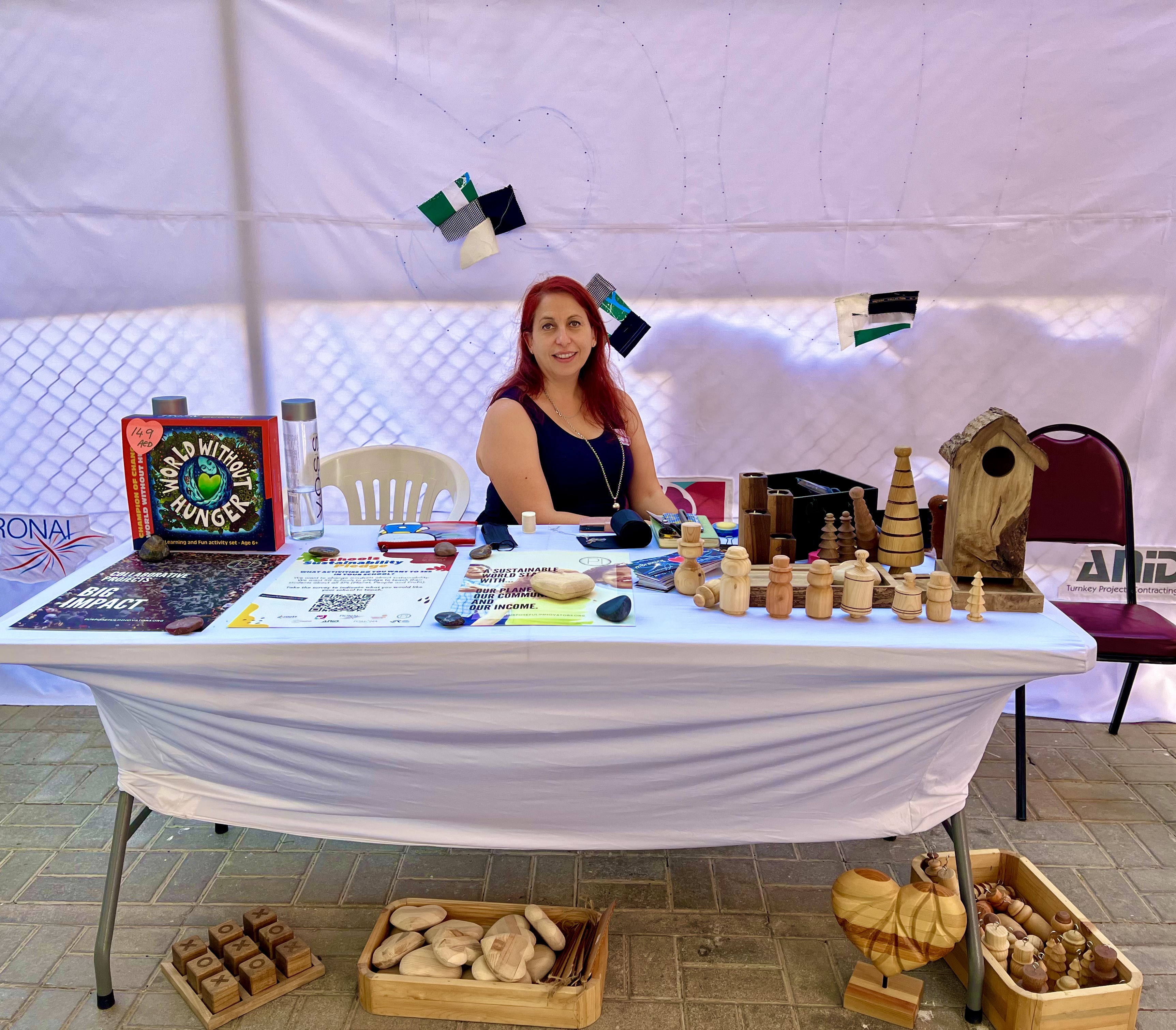
Rania Laing offers sustainability consulting for schools and businesses
Is it possible for a school or nursery to promote a truly sustainable lifestyle to children while also allowing meat? Homegrown Nursery co-founder Lucy Bruce says yes:
“I do believe that is this possible, just like I believe that through ethical and responsible farming, meat can be reared in a way that is kind to the animals and our planet.”
“Eating meat is a very personal choice and has been a valued and important part of our diets since the beginning of mankind. Unfortunately due to greed, fast food and fast paced lifestyles and the demand for poorly produced meat, the Amazon Rainforests have been destroyed and our climate has seen drought, warmer temperatures and flooding like never before, not to mention how cattle and livestock suffer at the hands of factory farming.”
“If we teach children from a very young age about the negative impact that eating a diet high in meat and dairy products has on our planet and our bodies they are then equipped to make responsible choices when requesting snacks and meals.
“Many families are able to include organic, free range, hormone free and grain/grass fed meat and poultry into their children’s diets however we need our governments to support farmers so that these meat options can be affordable for us all.”
For Arbor School Principal Brett Girven, teaching sustainability at school goes far beyond the question of serving meat or not.
“Have we as schools considered stopping using air conditioning to prevent the release of carbon into our atmosphere from the use of fossil fuels to generate energy? If we had to stop consuming animal products, does that include fish, chicken, and all forms of animal tissue and products such as dairy products and eggs, or only some forms of animal life? Have we seriously looked at reducing the carbon footprint of a school from transport angle? Each of these decisions could be considered equally important, so why consider only one action?”
“Education is intended to be a social good, but it’s always in danger of being Politicized.”
“My role as an educationalist, and what I believe the role of a school is, is to educate to ensure students are able to make informed decisions. Going beyond that becomes indoctrination, or supplanting the role of parents to make decisions for their children.”
Whatever your opinion on the viability of a meat-free school menu, there’s no doubt that there is still a long way to go when it comes to embedding truly sustainable practices in all schools:
As Asha Alexander, Principal, GEMS Legacy School and Executive Leader – Climate Change for GEMS Education says:
“To be a truly sustainable school, you have to embed two skills which I think are prerequisites. One is empathy, without which you cannot feel for the plight of another, let alone the planet. The other is collaboration, which will be the primary mover as we seek to address this huge challenge that lies before us.”
Could lab-grown meat offer an answer?
Science and the promise of an alternative – Meat grown in Labs?
It is estimated that just over fifty percent of land worldwide is used for agriculture and around three quarters of this is used for livestock. Around sixty percent of green houses gases are produced by livestock and related industries. Meat grown in the lab would remove the need to have livestock entirely and the whole process can be driven by solar energy.
Small scale proof of concepts have been completed. In August 2013 the first (solitary) test tube grown beef burger was cooked up in London costing a staggering AED 1,126,157.11 to produce. Tasters found its texture indistinguishable from meat but lacking in the flavour from natural animal fats.
Estimates are, however, that mass produced, flavourful, lab-made meat will be available affordably within a decade. At that point many of the current drivers for veganism, and particularly those relating to the climate and animal cruelty, will no longer be as relevant. If this is achieved too, another positive impact will be a decrease in antibiotic production – around 70% of all antibiotics produced today are pumped into animals.
A world with meat grown in labs? The mind boggles – but, at this stage of the game, we urgently need solutions to climate change and it seems, as in so many other areas, we are looking to Science to provide the answers and solutions we so desperately need as much as we may look to the small-scale choices we individually make in our day-to-day lives.
One lesson of that perhaps is the vital importance of Science, and broader STEAM, teaching in our schools. This literally holds our future, vegan or otherwise, in its hands.
© SchoolsCompared.com. A WhichMedia Group publication. 2023. All rights reserved.















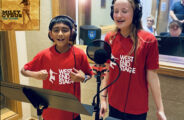



























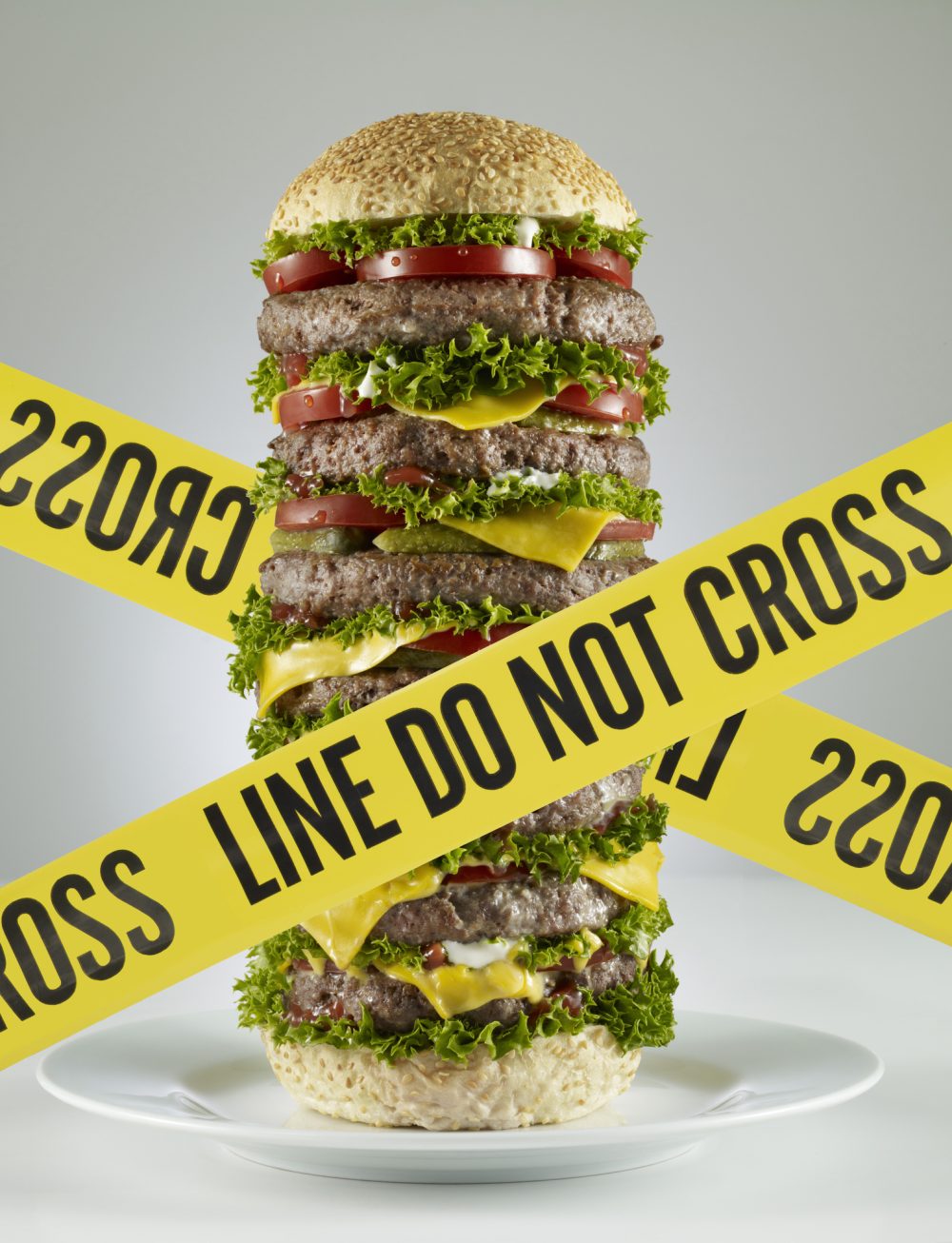

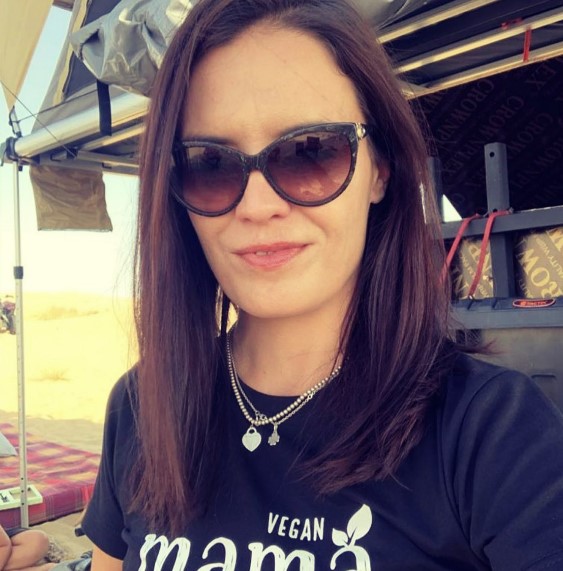




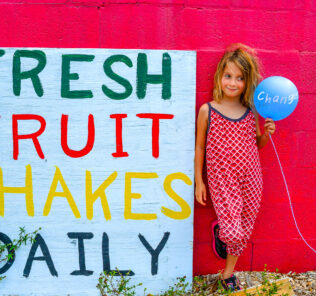
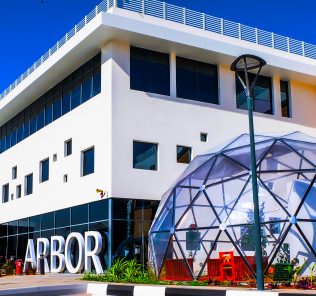


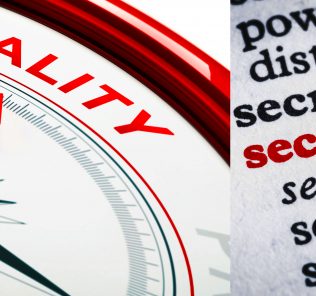















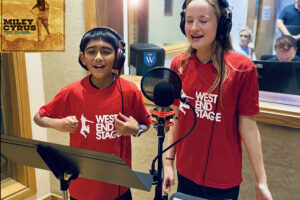

Great thought provoking read